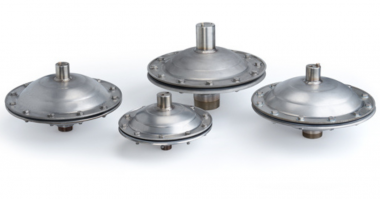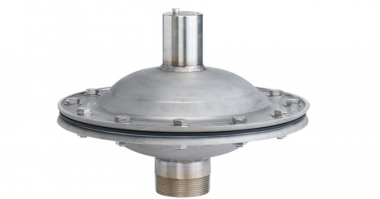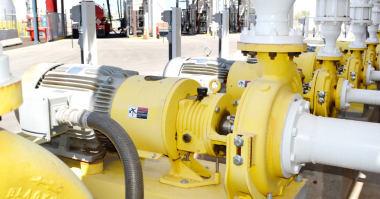In this edition of the Centrifugal Pump Minute, James Farley, Senior Director of Product Management for Griswold, takes a look at the different types of centrifugal pump impellers. Additionally, James discusses how the impeller impacts a pump’s hydraulic performance.
I wanted to talk a little bit about the difference that you can see within some pumps and how the design differences may impact the hydraulic performance. Here’s a diagram that shows some of the different impeller types. On the left here you’re going to see this diagram of what would be considered a closed impeller. One of these impellers will have what’s considered a front shroud, that’s this feature on the front of the impeller and then a shroud on the back as well. Then the fluid is going through the internal passageways of this closed impeller. These impellers you’re going to see them as being desirable when it comes to hydraulic efficiency because you can control the flow passage very well within the impeller itself. You can design these pumps as new operate at high efficiencies. Over time that internal flow path is going to wear away, particularly if you’re using abrasives or you’ve got chemical corrosion attack or chemical attack going on on the pillar. The internal flow path will start to change over time and that will cause one of these impellers to have a performance decline over the life. The decline will depend a lot on the conditions of service and the fluid that’s being operated or used. The other challenge with the closed impeller is that if you’re operating the pump with any kind of solids, then a solid could get stuck inside the impeller and then cause hydraulic imbalance and then ultimately excessive vibration until you stop the pump and clear that blockage. You’ve got a lot of pumps out there they’re closed impellers you’re typically going to see them on clean fluid applications where you want really high efficiencies.
When you come to this next category which is what is called semi-open, some people call them open impellers. In these, you can see there’s no front shroud on the impeller itself. That means the impeller has to be installed and controlled on its placement very close to the casing. The flow in one of these pumps goes inside the impeller vein profiles but then the case itself is also the front shroud on these particular pumps controlling the flow path. These pumps because you have a gap between the casing and the impeller you’re not going to get the same hydraulic efficiency and performance out of these pumps. There’s an advantage when it comes to solids because if you do have a solid that gets stuck in the pump it will wear itself down until it gets passed through. Because you’ve got a rotating running next to a stationary casing and so you can clear solids better with one of these semi-open impeller designs.
View more Centrifugal Pump Minute videos.




Comments